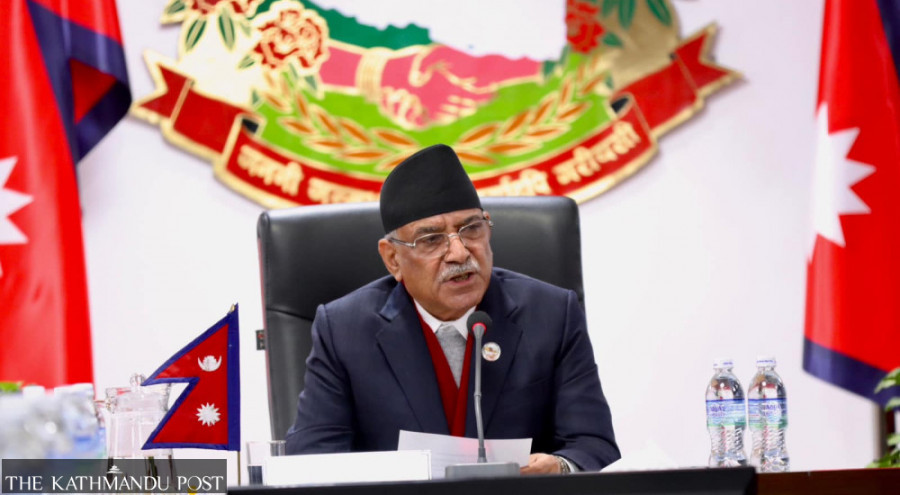National
Dahal’s graft probe should begin with his own actions, say experts
Anti-graft commission formed through a political decision can only prepare reports, but not punish anyone.
Tika R Pradhan
Prior to his appointment as prime minister, Pushpa Kamal Dahal had announced at public functions that he would form a high-level commission to investigate the properties of people who had held public office since 1990.
Although Dahal seems to have made the announcement with an intention of garnering public support instead of a genuine intention to curb corruption, experts welcomed the proclamation of the prime minister since the Commission for the Investigation of the Abuse of Authority–the constitutional anti-graft body, has largely failed to take action against corrupt politicians.
The former coalition involving the CPN-UML and the Rastriya Swatantra Party, and the existing including the Nepali Congress, in their common minimum programmes had talked about probing corruption and taking strong legal action against the guilty. However, both programmes do not specify what the probe body will be like.
Against that backdrop, Prime Minister Dahal has been reiterating that a high-level commission of inquiry would be formed to investigate the existing and former officials who have amassed huge wealth through corrupt means. He repeated the same on Monday as well.
“We have also expressed our commitment in the election manifesto to probe all corruption cases since 1990. We are working to form a commission,” Dahal said while addressing the inaugural session of the eighth national convention of the All Nepal Trade Union Federation, on Monday. “Our three major priorities are—social justice, good governance and prosperity and we will work toward forming a commission to ensure the objective of good governance.”
Dahal said the government will create a new environment of hope, ensuring good governance by probing all corruption cases.
Some experts have hailed the prime minister’s plan saying that the commission would give necessary suggestions to the government in its report and the anti-graft body will be under pressure to implement them.
“It’s not that the new commission will overlap the ongoing investigations of the CIAA, instead it will prepare a report, which is expected to create pressure on the constitutional anti-graft body to work more effectively,” said Gauri Bahadur Karki, former chair of the Special Court and an anti-corruption advocate. “But the question is what type of person will head the new commission.”
Former Chief Election Commissioner Bhojraj Pokharel also echoed Karki saying that despite the prime minister’s statement being kind of a political stunt, it was still a welcome move given the public frustration with the CIAA that has been busying itself in small corruption cases while sparing powerful politicians involved in bigger scandals.
“The CIAA has indeed failed to probe high-profile graft cases involving powerful politicians,” said Pokharel. “If the existing commission had done its job properly, no one would be talking about a new high-level corruption commission.”
According to Pokharel, the high-level commission proposed by the prime minister can only prepare an investigation report and will not have the power to take action. So it essentially will be the CIAA that will have to implement the report.
Earlier, the Royal Commission formed by King Gyanendra’s Cabinet was scrapped by the Supreme Court, because the commission had been given the authority to also take action against those found guilty.
Pokharel said the government can either draft a law stipulating the areas the high-level probe commission covers, or it can form the commission through a political decision.
But some experts claimed that the prime minister’s statement was nothing but a publicity stunt because if he is really serious about tackling corruption then he should start by looking into himself.
“What can we expect from a person who cannot change himself,” says Surya Nath Upadhyay, former chief commissioner of the Commission for the Investigation of Abuse of Authority (CIAA). “If he actually wants to bring change, then the prime minister should start the corruption probe from himself. We have not seen his property details.”
Upadhyaya said the prime minister should first probe the properties of his ministers and also come clean on the expenses his party made on the Maoist fighters.




 10.12°C Kathmandu
10.12°C Kathmandu















